CATE Action Research Scholars: Where are they now?
text1
In CATE’s Action Research Scholars program, UIC instructors engage in data-informed, reflective teaching practices. Scholars ask “How do I know I’m effective in my teaching?” by investigating the impact of their teaching practices on student learning.
This is a year-long professional learning program where scholars develop and implement a research project, including obtaining IRB approval, data collection, analysis, and dissemination. Since the program’s inception, over 9,000 students have been impacted by the scholars’ projects. In addition to developing skills for conducting education research, scholars have worked with undergraduate students as research partners, become involved in projects and grants in their departments, and have disseminated their research in publications and at local, national, and international conferences. Keep reading to see where the Action Research Scholars have taken their classroom research projects since they completed the program, and how they’ve continued to innovate and be leaders in teaching.
text 2

Martina Bode and Shavila Devi published their research on “Post COVID-19 Pandemic on Modality Preferences, experiences, and factors contributing to students’ success in mathematics courses” in EduLearn proceedings. Martina and Shavila continue to explore students’ self-efficacy and motivation across different course modalities in the Department of Mathematics, Statistics, and Computer Science.
text 3
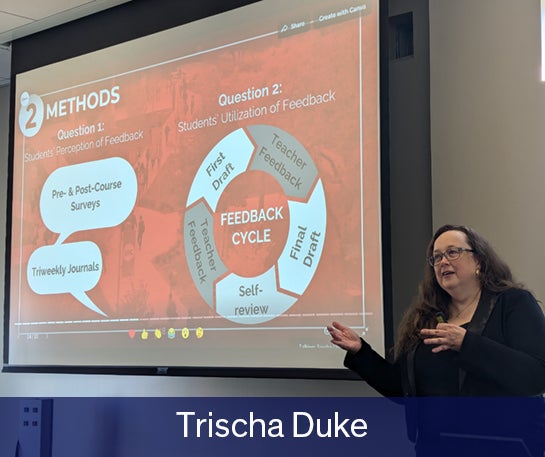
Trischa Duke presented her findings on international students’ perceptions and utilization of instructor writing feedback at the CATE Seminar Series. She continues her work with colleagues from the Tutorium on incorporating Universal Design for Learning and inclusive teaching practices in on-campus and online courses.
text 4
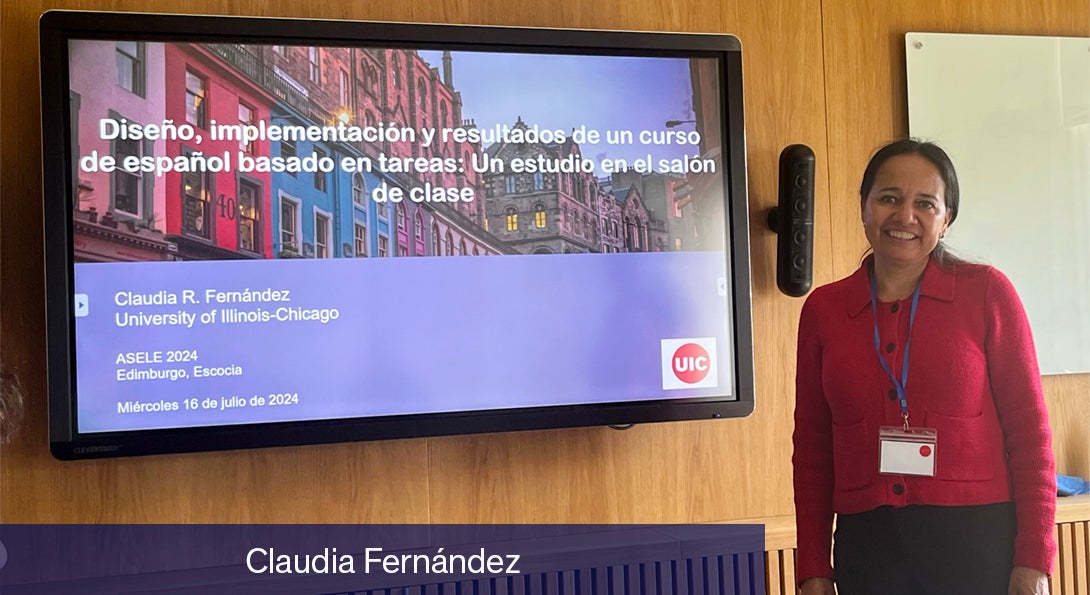
Claudia Fernández presented findings from her project, “Evaluating the Effectiveness of Task-Based Language Teaching in the Spanish Learning Classroom” at the Asociación para la enseñanza del español como lengua extranjera (ASELE) in Edinburgh, Scotland, and plans on extending this project in her role as Director of Spanish Basic Language Program and innovating how students learn Spanish at UIC.
text 5
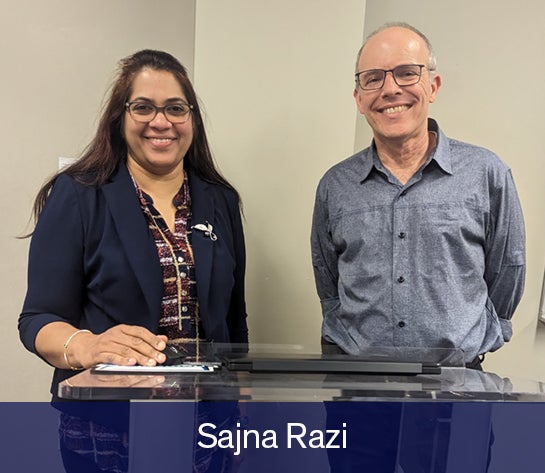
Sajna Razi presented on how the inclusion of marketing technologies in business education impacts student learning outcomes, self-efficacy, and engagement at the Learning Sciences Research Institute speaker series, hosted by Josh Radinsky, Associate Professor in the College of Education and Learning Sciences. She is planning on studying AI in marketing technologies in her next line of research.
text 6
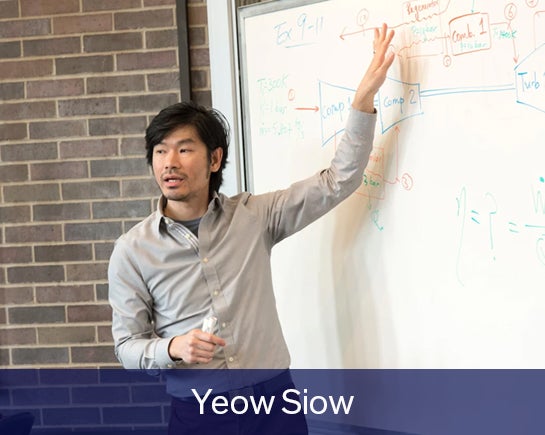
Yeow Siow presented his project on “Investigating the Effects of Fluency-based Assessment and Grading System on Student Engagement and Motivation” at the UIC SparkTalks, where influential UIC changemakers share their ideas and work. Watch and get inspired by his lightning talk! He continues to study how rethinking how we assess students can improve students’ learning experiences.
text 7
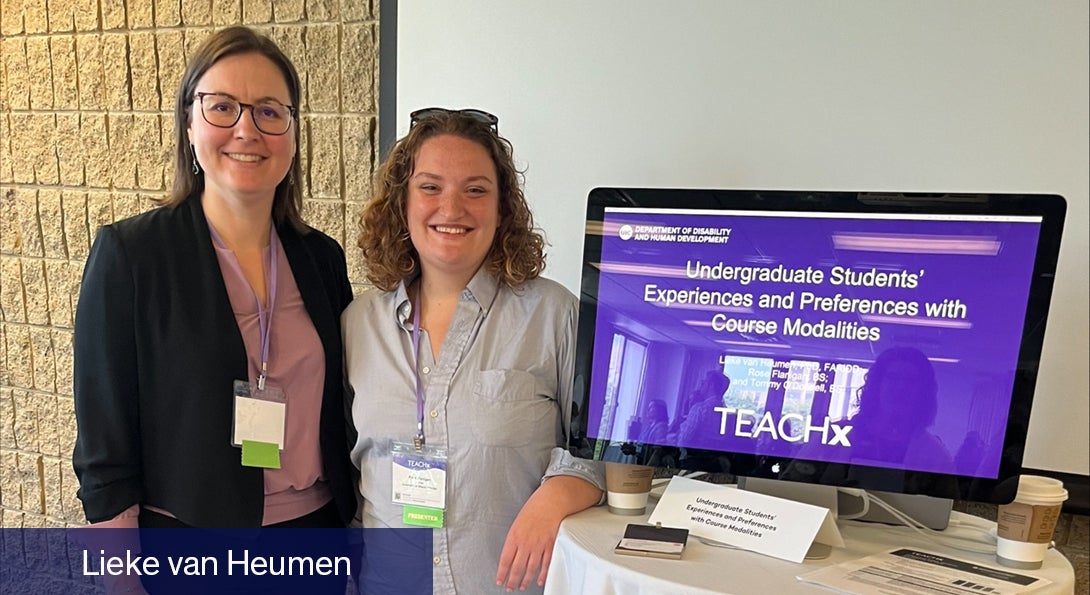
Lieke van Heumen and UIC undergraduate student researcher Rose Flanigan presented their project on “Undergraduate Students’ Experiences and Preferences with Course Modalities” in a large enrollment general education disability studies course at Northwestern University’s annual TEACHx Conference. She is now working with student researchers to study how plain language summaries can promote accessibility.
text 8

Charitianne Williams presented her work, “Recognizing Writer Transformations Using Threshold Concept Frameworks” at the Conference on College Composition and Communication in 2024. She has created, iterated, and validated a threshold crossing inventory for writing using student feedback.